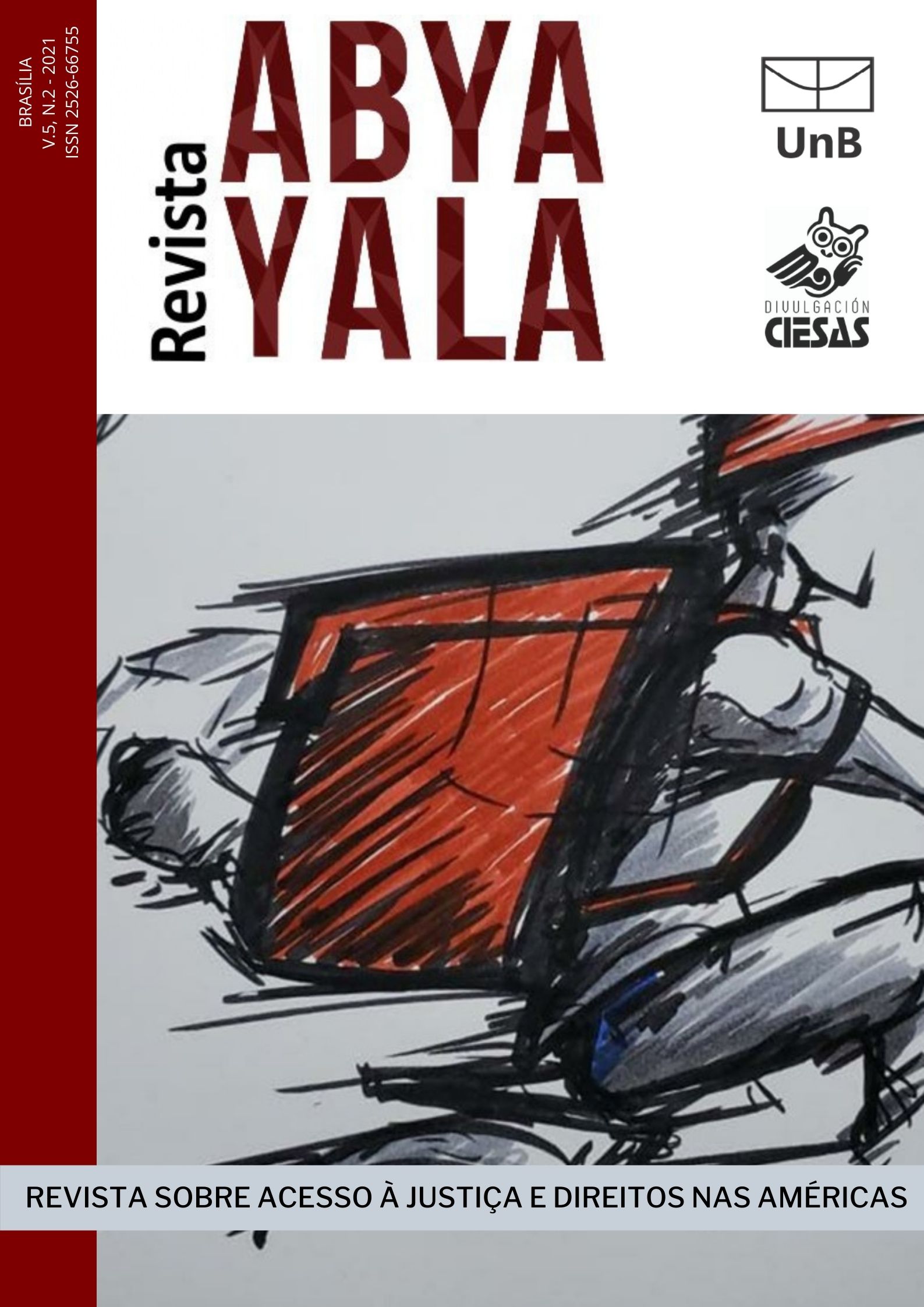SOCIAL POLICIES AND RIGHTS IN THE BIOGRAPHICAL TRAJECTORIES OF FOUR URUGUAYAN WOMEN
DOI:
https://doi.org/10.26512/abyayala.v5i2.41255Keywords:
Social Policies; Rights; Gender; Biographical Trajectories; UruguayAbstract
This paper has been written based on an etnographic-colaborative research project in different scenarios of the Uruguayan territory, together with technicians from the Social Development Minister (MIDES), between 2018 and 2019. In the last 15 years, a set of social policies have developed to protect sectors of the population whose rights have been structurally violated. In particular, they targeted women, who have carried social and moral burdens that have forced them to sustain care and economic provision, especially among the popular classes. In addition to the universal policies who attend them, there were proximity policies aimed at accompanying those in the most vulnerable situations in the poorest neighborhoods throughout the country. This article, based on four women's trajectories (two of them transgender), aims to offer an understanding of the impact on them of social policies and the moralities (especially those linked to gender issues) to which they relate.
Keywords: Social Policies; Rights; Gender; Biographical Trajectories; Uruguay
Downloads
References
ÁLVAREZ RIVADULLA, M. J. (2015) “Asentamientos irregulares y política en perspectiva histórica y comparada, ponencia presentada en el Seminario Quince años, más de cien historias, PMB – MVOTMA, Montevideo.
AMARANTE, V., & VIGORITO, A. (2012). La expansión de las transferencias no contributivas en Uruguay en los últimos años. Research Brief, (29).
AUYERO, J., BURBANO DE LARA, A., & BERTI, M. F. (2014). Violence and the State at the Urban Margins. Journal of Contemporary Ethnography, 43(1), 94-116.
BOURGOIS, Ph. (2010) En busca de respeto. Vendiendo crack en Harlem, Siglo XXI, Buenos Aires.
ELIAS, N. (2015). El proceso de la civilización: investigaciones sociogenéticas y psicogenéticas. Fondo de cultura económica, México.
FRAIMAN, R. y ROSSAL, M. (2009) Si tocás pito te dan cumbia. Esbozo antropológico de la violencia en Montevideo. MI, Montevideo.
GAINZA, P. P., & TECHERA, J. (2016). ¿Ocho horas de inclusión?: políticas laborales para personas trans en Uruguay. Los casos del Programa Uruguay Trabaja y el llamado para ingreso a la administración pública. Revista Sexología y Sociedad, 22(2), 131-148.
KEUROGLIAN, L, RAMÍREZ, J & SUÁREZ, H (2019) “Aproximaciones cuantitativas al fenómeno del consumo de pasta base de cocaína (PBC) Lecturas a partir de los resultados del RDS”, En: ROSSAL, M. & SUÁREZ H., Personas, calle, consumos: dos estudios sobre uso de pasta base en Uruguay Aproximaciones cuantitativas y etnográficas, IMPO, Montevideo.
INEEd (2019) Informe sobre el estado de la educación en Uruguay 2017 - 2018, INEEd, Montevideo.
MERKLEN, Denis (2005), Pobres ciudadanos: Las clases populares en la era democrática (Argentina, 1983-2003), Buenos Aires: Editorial Gorla.
LEOPOLD COSTÁBILE, S., GONZÁLEZ LAURINO, C., BARÁIBAR RIBERO, X., & PAULO BEVILACQUA, L. (2015). Las trayectorias de inclusión como estrategias de integración social. Cuadernos de Ciencias Sociales y Políticas Sociales; 2.
ROSSAL, M., BAZZINO, R., CASTELLI RODRÍGUEZ, L., GUTIÉRREZ NICOLA, G, & ZINO GARCÍA, C. (2020) La pobreza urbana en Montevideo. Apuntes etnográficos sobre dos barrios populares, Ed. Gorla / Ed. Pomaire, Buenos Aires / Montevideo.
ROSSAL, M. (2017). Violencia institucional hacia usuarios de pasta base de cocaína en Uruguay. ABYA-YALA: Revista sobre acesso á justiça e direitos nas Américas, 1(1), 96-108.
SEMPOL, D. (2019). Memorias trans y violencia estatal. La Ley Integral para Personas Trans y los debates sobre el pasado reciente en Uruguay. Páginas (Rosario): Revista Digital de la Escuela de Historia, 11(27), 6.
Downloads
Published
How to Cite
Issue
Section
License
Copyright (c) 2021 Abya-Yala: Journal on Access to Justice and Rights in the Americas

This work is licensed under a Creative Commons Attribution-NonCommercial 4.0 International License.
The sending of contributions to Abya Yala implies the assignment of copyright and publication to the Journal, observing the Attribution-Non-Commercial 4.0 International (CC BY-NC 4.0) adopted.
The content of the texts submitted to and published by the journal will be the sole responsibility of their respective authors.
Copyright: https://creativecommons.org/licenses/by-nc/4.0/deed.en








